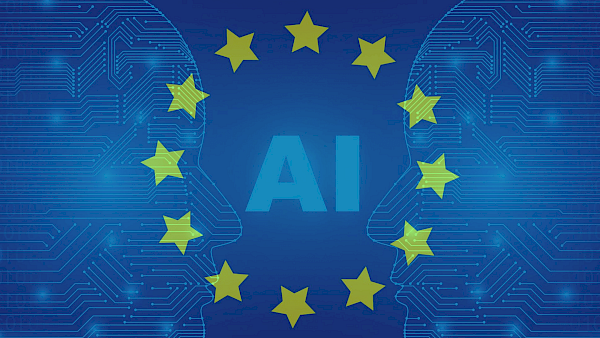Episode transcript The transcript is generated automatically by Podscribe, Sonix, Otter and other electronic transcription services.
Hello, everyone. Here is Ricardo Vargas, and this is the 5 Minutes Podcast. And today I want to talk about a major regulation milestone in AI, the European Union AI Act, and the direct impact it's already having on our own projects. Of course, the law was not created today, okay? It was adopted in 2024, but this enforcement is being phased in with full application expected by August 2026. But just a few days ago, on August 2nd, 2025, one of the most anticipated and controversial parts of the law came into force: the requirements for general-purpose AI models. These are the foundation models like OpenAI, ChatGPT, Anthropic Claude, and Google Gemini, systems that aren't built for a single task but can be applied to cars, hundreds or even thousands of different use cases. From now on, these models must comply with strict rules, and transparency about their capabilities and limitations. Disclosure of copyrighted material in training data, mitigation of systemic risks, and proper technical documentation. But look, don't think that these only affect big AI developers. It only affects OpenAI, Google, Anthropic, or Meta, no! If you are leading a project that uses these technologies, you are now part of the regulatory equation. Even if you are just integrating these models into a chatbot, an automation tool, or a digital product, you now share responsibility, especially when it comes to bias, privacy, and ethical use.
This fundamentally changes the role of us as project managers. It's no longer enough to deliver on scope, time, and budget. You now need to ensure that the use of these AI tools in your project is compliant with the law, that you are assessing the risks, that the data is protected, and users are clearly informed about what your AI can and cannot do. And this shifts both the scope and the definition of success for many projects. Success is not about a working system anymore. It's a responsible, ethical, and compliant one. But of course, the AI Act hasn't been met with universal praise. It's sparked a strong reaction from industry stakeholders, researchers, and even some of the EU member states. Many complained that the regulation is too restrictive, and it may create an innovation barrier that pushes investment and talent away from Europe. The most common concern is that of trying to protect citizens. The EU might end up stifling its own competitiveness in the global AI stage. And yes, that is an absolutely valid concern, especially considering that technology evolves much faster than any legislative process can keep up. It's just impossible to track what is happening with the technology.
But we should also remember that true maturity in technology means operating under clear and responsible rules. In that sense, the AI Act sets a global benchmark. And as project leaders, our role isn't to pick sides in this ideological debate. Of course, you can pick your site, but our role is to understand the new reality, prepare for it, and make sure our projects are ahead and not behind when compliance becomes non-negotiable. Now it's time to include AI due diligence, legal reviews of AI providers, and ethical evaluation criteria into our project plans. It's time to collaborate more closely with legal teams, privacy experts, compliance officers, and data governance leads. And this isn't just about risks. It's a chance to build better, more trustworthy, and more resilient projects. The kind of projects that clients value and regulators respect. The AI Act isn't just a warning; it's a compass for quality and responsibility. And the August 2nd milestone sends a clear message. The experimental phase of AI is over. Those who aren't ready for this new reality risk being left behind. So think about that. Take a look at the EU AI Act, and I hope you enjoy this podcast and see you next week with another 5 Minutes Podcast. See you there.

